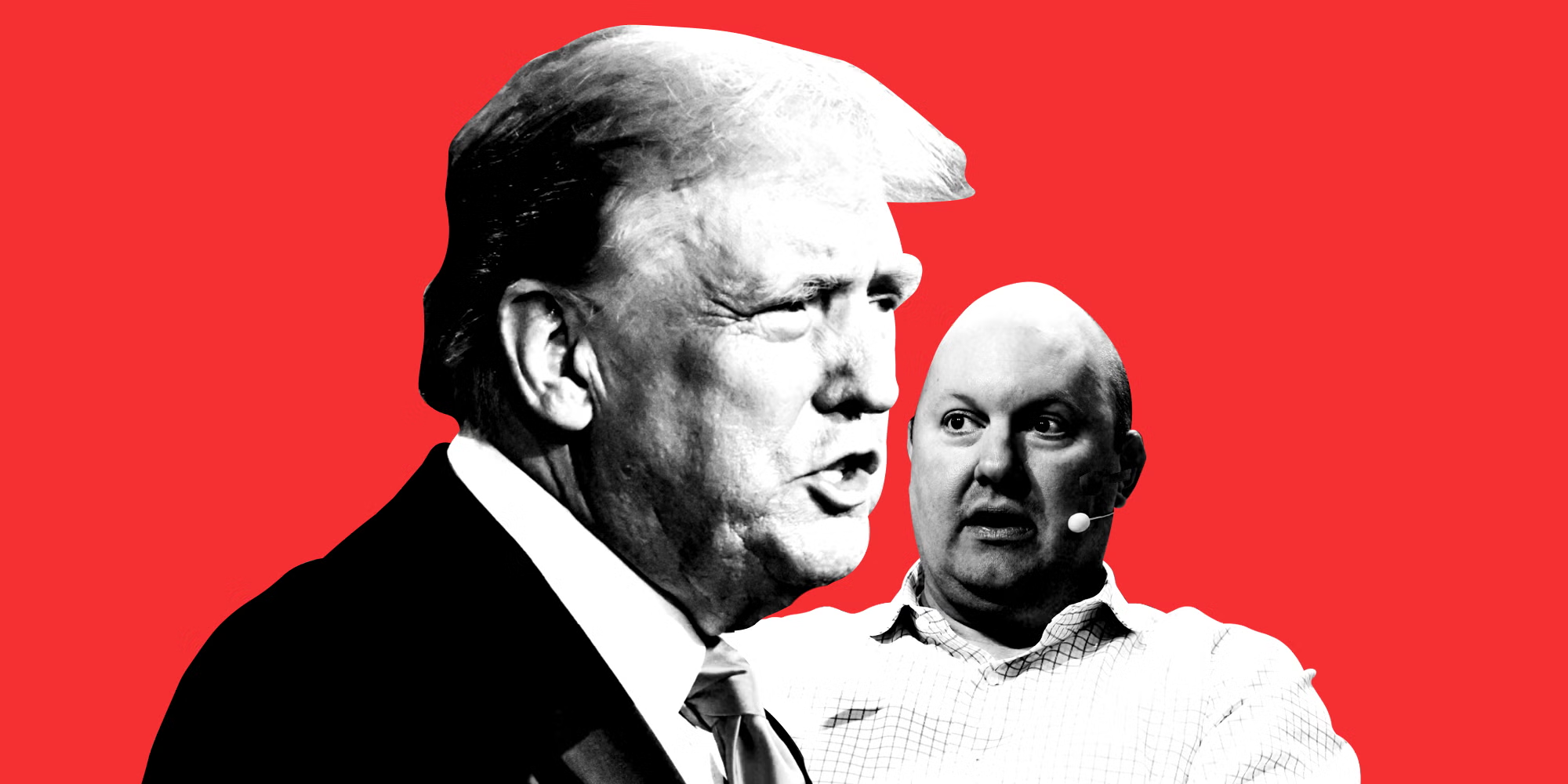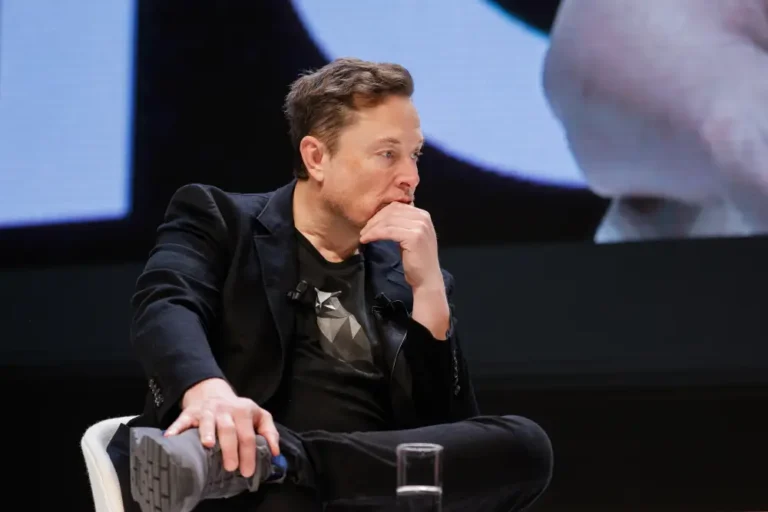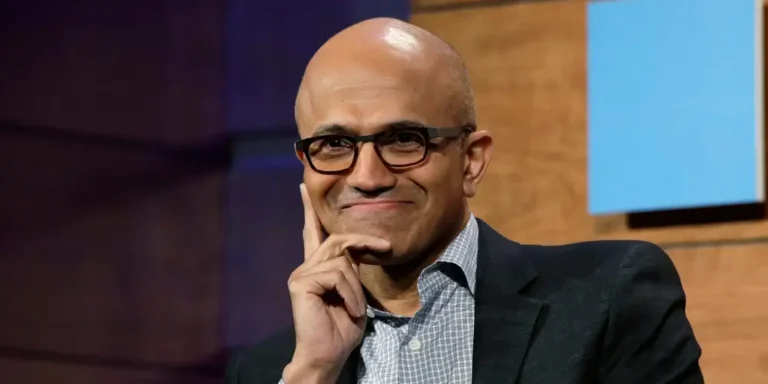Big Tech’s phony Trumpism

Why Marc Andreessen is wrong to support Trump, according to Marc Andreessen
On July 16, the famed technology investor Marc Andreessen announced via podcast that he is supporting Donald Trump in his campaign for a second term as president. That’s a huge about-face: Andreessen backed every Democratic presidential candidate from Bill Clinton to Hillary.
I listened to the podcast, all 85 minutes of it, to hear why Andreessen is joining so many other big names in Silicon Valley — from his investing partner Ben Horowitz to Elon Musk to Larry Ellison — in backing Trump. The main reason, Andreessen explained, is what he’s been touting as a “Little Tech” agenda, which decries any government regulation of technology and venture capital. Scrappy little startups, the manifesto asserts, are “the vanguard of American technology supremacy.” They fuel hypergrowth, improve everyone’s quality of life, and guarantee American military superiority and global stability. The Little Tech agenda also includes a surprising hat tip to the defense industry, one of Silicon Valley’s original funders and most reliable customers.
“A startup,” Andreessen has written, “is what happens when a plucky group of outcasts and misfits comes together with a dream, ambition, courage, and a particular set of skills — to build something new in the world, to build a product that will improve people’s lives, and to build a company that may go on to create many more new things in the future.” And Trump, he believes, is the man who will prevent big government from getting in the way of these daring visionaries.
After listening to Andreessen explain his political change of heart, I came away convinced of two things: (1) His Trumpiness doesn’t make much sense, and (2) neither does his Little Tech agenda.
How do I know this? Because for the past 20 years, I’ve been reading a smart, prolific tech blogger named Marc Andreessen.
Before Andreessen and Horowitz formed their venture-capital firm in 2009, Andreessen was an incisive observer of Silicon Valley. And in those days, before he had so much money in the game, he warned us against falling for the kind of hyperbole he’s now spewing.
Back then, Andreesen’s concept of what constituted a startup was a lot simpler. “There are many fine businesses in the world — many of them highly profitable, and very satisfying to run — that do not have leverage in their model that makes them suitable for venture capital investment,” he wrote. Meaning, in plain English, that what constituted a startup worthy of VC backing was the ability to get a 10x return on investments in five years — to make something once, like a piece of software or a website, and then sell it to 1,000 businesses or millions of consumers.
That’s it. That’s all a venture-backed startup should be, according to Andreessen. It’s not Captain America’s shield or something.
Big Andreesen (meaning the current bloated billionaire model) also contradicts Little Andreessen (the earlier, leaner blogger) on the issue of regulation. His partner, Horowitz, recently wrote that the main risk to American tech, and by extension American global hegemony, is “misguided regulatory policy.” Government needs to get out of the way of “decentralized technologies” like AI, biotech, and blockchain and focus its energies on “the centralized, monopoly-enabling technologies of web 2 and the industrial-era financial system.”
But 15 years ago, Andreessen told us that’s the wrong way to think about the internet. “Web 2.0,” he wrote, “has been picked up as a term by the entrepreneurial community and its corollaries in venture capital, the press, analysts, large media and Internet companies, and Wall Street to describe a theoretical new category of startup companies.” But it was just branding, he explained. There aren’t “spaces” or ecosystems. “If the product is compelling to the market, it will succeed,” he wrote. “If the product is not compelling to the market, it will fail.” The issue isn’t whether tech is good or bad for America. The issue is whether the tech actually works and fills a need.

To be fair, Andreessen didn’t worry much about regulation back in the old days. The reason, he now claims, is that government used to leave Silicon Valley alone. On the podcast he said Democrats used to be “pro-tech, they were pro-startup, they were pro-America winning in tech markets, they were pro-entrepreneurship. You could be successful in business, you could make a lot of money, and then you give the money away in philanthropy and get enormous credit.” VC investors operated in a magical technolibertarian liminal space, a West wild enough to enable them to make tiny iPhones and big bucks. But the Biden administration changed that, Andreessen argues, by trying to regulate the “math” of AI and by going after Big Tech’s anticompetitive and deceptive practices.
In this case, Andreessen is just deploying the Trumpian trick of falsely idealizing the past. The Biden administration didn’t invent tech regulation. It’s just resuscitating regulatory practices that were well in play back in the 1990s and early 2000s. Like when the Justice Department sued Microsoft and separated its web browser from its operating system. Or a decade or so before that, when the government broke up AT&T and sparked a whole new flourishing of telecommunications companies. Enforcing regulations almost always opens the field to new startups and a diverse set of new technologies. Biden’s position is basically that to Make America Great Again, we need to Make America Innovate Again.
I suspect some of Andreessen’s support of Trump is really just personal. His explanation for why he endorsed Barack Obama basically boils down to “I had a very long meeting with him and he charmed me.” This time around, well, Donald Trump met with Andreessen and Horowitz, but Joe Biden did not.

At any rate, Andreessen’s support of Trump hardly comes as a surprise. He and his fellow Silicon Valley investor-class billionaires have been sliding rightward for years. Despite all their highfalutin language about saving America through technological innovation, they’re actually arguing against the kind of anticompetitive rules that would enable innovation to flourish.
“The ‘Little Tech Agenda’ has nothing to do with innovation or technology,” observes the political scientist and tech analyst Dave Karpf. “It’s just a VC wish list. The investor class isn’t clever enough to invest in companies that turn a profit by bringing useful products to market anymore. They need special treatment from the government for their bad investments to pay off.”
Beyond his own share prices and dividends, Andreessen’s biggest about-face is his refusal to take into account the larger consequences of supporting Trump. In 2016, Andreessen explained his support of Hillary Clinton at the Bloomberg Technology Conference. He said he looked at four criteria for a president: science policy, market policy, trade, and immigration. He was unhappy with the Democrats for regulating GMOs, he said. But the dealbreaker, for him, was Trump’s restrictive and racist immigration policy.
“The Valley wouldn’t be here, we wouldn’t be doing any of this, if we didn’t have the amazing flow of immigrants that we’ve had in the last 80 years,” Andreessen declared. “And the idea of choking that off just makes me sick to my stomach.”
Since then, Trump’s immigration policies have only gotten worse. But Andreessen’s digestion has somehow improved?
I’ve been writing about the tech industry, on and off, since before Andreessen’s company Netscape went public. I always thought that the gadgets and connections coming out of Silicon Valley were more than just toys — that they really could presage a world where people had better stuff and more knowledge. I bought Silicon Valley’s founding rhetoric. Tech would be a great democratic equalizer. Whether people got rich along the way seemed incidental.
I now understand my mistake. It’s not that Andreessen has changed, or that his support of Donald Trump is hypocritical. It’s that I didn’t see that this is where Silicon Valley was always headed. For the people who got rich off tech, getting rich was always the point. By backing Trump, they’re making clear that nothing else matters to them: not human rights, not the climate emergency, not women’s reproductive health, not the “amazing flow of immigrants” who helped them get rich in the first place. It’s easy to scoff at the way they now claim to care about making America great. But I was a sucker for believing they ever cared about anything beyond their own self-interest.






